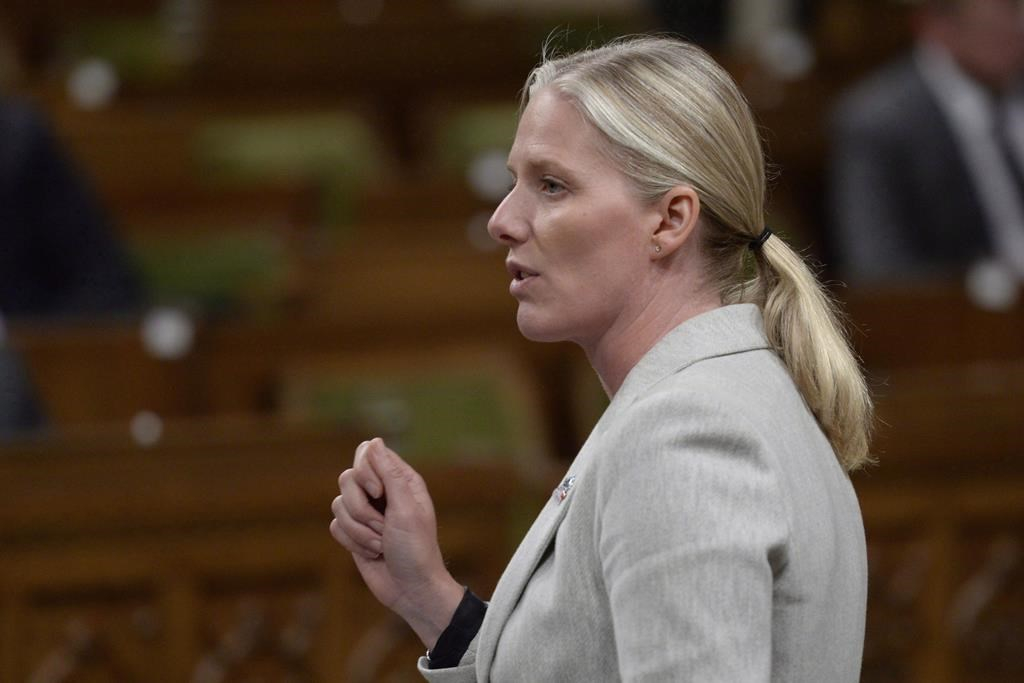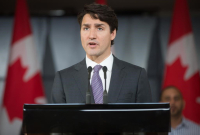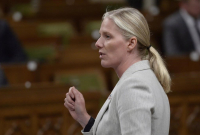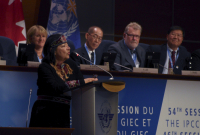Support strong Canadian climate journalism for 2025
Canada's environment minister hopes a gathering this weekend of the world's biggest economies and polluters will provide a show of strength for continuing with the Paris climate change agreement, despite the pending withdrawal of the United States.
Catherine McKenna will host environment ministers and officials from 30 other nations in Montreal at an event designed largely to help prevent an American retreat from the climate agreement from pushing the whole thing off the rails.
"I think it's really important we advance the Paris agreement agenda and show that we are strongly aligned on ambitious climate action," McKenna told The Canadian Press earlier this week.
While not an official meeting for the Paris protocol, which is governed by the United Nations Framework Convention on Climate Change, the gathering is a more informal way for some of the world's leading powers to brag about what they've done so far and push each other to keep going, even as the U.S. prepares to withdraw.
McKenna is co-hosting the meeting with Xie Zhenhua, the Chinese special representative for climate change affairs, and Miguel Arias Canete, the European Union commissioner for climate action and energy.
The Paris agreement was signed by 195 nations in December 2015, committing almost every country on the planet to work towards keeping global warming to an increase of less than two degrees above preindustrial levels, through national emissions reductions targets, mitigation for climate change events and assistance to the developing world.
It came into force in 2016, but the rules for implementation are still being worked out and the work plan for full implementation of the agreement will be updated at the next UN climate meeting scheduled for Bonn, Germany in November.
The Montreal meeting was conceived last May, when Canada and other G7 nations were concerned about U.S. signals it was pulling back from Paris. McKenna flew to Berlin to meet with Xie and Canete to figure out a way to keep Paris moving forward.
Just two weeks later, U.S. President Donald Trump announced he would begin the process to formally withdraw the United States from the Paris protocol.
He can't even officially signal intent to withdraw until 2019 and can't actually leave until November 2020.
The U.S. is sending an official to Montreal at least. Eric Flanagan, director of federal policy for the Pembina Institute, says that signals the U.S. is still engaged and may start to make known its strategy for Paris going forward.
"(President Trump) still wants to be at the table," said Flanagan.
McKenna said the list of countries attending the Montreal event is impressive. They include all of the G7 and all but two of the G20, meaning most of the world's biggest economies and 17 of the 20 biggest emitters, representing more than three-quarters of global annual emissions will be represented.
"That gives it legitimacy and makes me feel like the parties are serious about actually covering some important ground," she said.
"They wouldn't all be coming together if they didn't think they could forge some progress together."
She hopes the talks will focus on everyone's domestic measures for cutting their own emissions, a virtual show-and-tell of sorts that can provide ideas and prove all are still strongly committed to progress on their Paris plans.





Comments